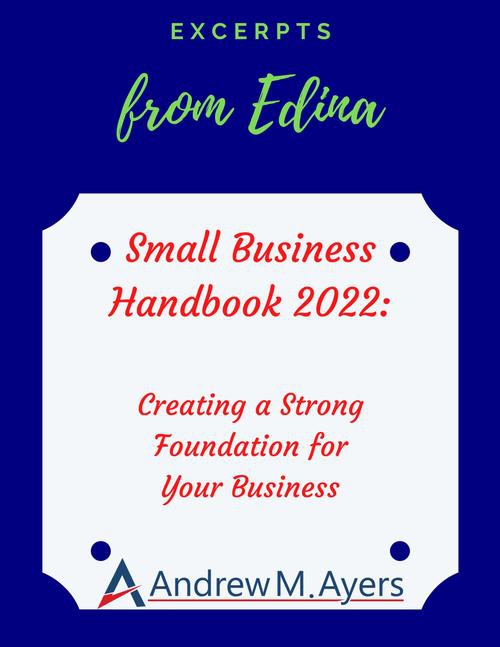 One of the biggest advantages of creating your own business is to give you and your assets protection from personal liability. You don't need to dip into your personal funds to run your business and should be keeping a separate bank account for your business. But especially if you've just started your business, you, as the owner of the business, may be asked to sign a personal guarantee for certain debts of the business.
One of the biggest advantages of creating your own business is to give you and your assets protection from personal liability. You don't need to dip into your personal funds to run your business and should be keeping a separate bank account for your business. But especially if you've just started your business, you, as the owner of the business, may be asked to sign a personal guarantee for certain debts of the business.
If you are looking to get a loan, the financial institution that you are dealing with will often ask you to sign a personal guarantee. When you take on your first commercial space (an office or a storefront), your landlord may also request that you personally guarantee all or part of the lease payments. Without a track record of making payments, they want to make sure that if your business folds after a few weeks, they aren't left without a way to get paid (and they've often done some kind of a build-out or other work on the space to get it ready for you).
For many clients, this can be confusing (since one purpose of your business is to insulate you from having to be liable for business debts), especially when you are given a contract with a long and convoluted personal guarantee attached as "Exhibit A." Before you sign off on that guarantee, if you have questions, it's a good time to speak to an attorney to make sure it's something you really want to sign.
Personal Guarantees
A personal guarantee is a promise by you that if your business fails to pay a debt, you will step in and be responsible for the debt. By signing it, you are putting your own personal assets on the line for the obligations of the business. Essentially, you are "co-signing" onto the transaction. Even if your company goes out of business, you'll still be responsible to pay off the loan or other financial obligations. The larger the debt, the more aggressive the lender will likely be about making sure they get paid for the debt.
It is not uncommon in these situations to find yourself as a party to a lawsuit, which names your company as a party, but then also names you personally as well. While the company may be out of business and closed, you will still need to defend yourself personally so that they don't get a default judgment against you. If they do get that judgment, they will likely try to collect against your personal assets.
Who Signs the Guarantee?
When you are the only owner of a company, the lender will often ask you to be the one to sign the personal guarantee. But what if you have business partners? If that's the case, the lender will likely take a personal guarantee from anyone who owns at least 20% of the company. This will usually alleviate some of the fears of the lender because the risk of default is being spread across multiple people as opposed to just your shoulders.
One thing to be careful of is if you aren't the owner, but are just being asked to sign the guarantee for the business, you should think long and hard before you sign off on the paperwork. Especially if you aren't actively involved in any way, a personal guarantee can create a long-term headache for your personal finances if the business you don't control can't make its payments.
What to Watch Out For
The devil is truly in the details of these documents. If you haven't read through the entire document, do not sign it. There are often terms, especially near the end, that are very important for you to understand. For example, if you are dealing with an out-of-state financial institution, you may be agreeing that any disputes are going to be heard in courts that are far away from you (but convenient for the lender).
Even more dangerous, some of these documents may have you agree to "waive" the service of documents. This means that the lender can bring a lawsuit against you and will not need to personally serve you (despite what the law requires). Often times they will simply drop documents in the mail and those documents may not reach you in time before they have taken a default judgment against you. Before you know it, you are receiving levies and other documents from your bank that the lender has put a freeze on your personal assets.
...
As with many other contracts you run across, it's important that you fully read and understand what's in them. You may be comfortable with the risks involved and with the jurisdiction being in a courthouse far from your business, but you need to know these things before you sign the document.
Next Steps
Have you been presented with a personal guarantee for your business (or someone else's business) and aren't sure if you should sign it? Let's set up a Legal Strategy Session to review it and make sure you understand what you are being asked to sign.



